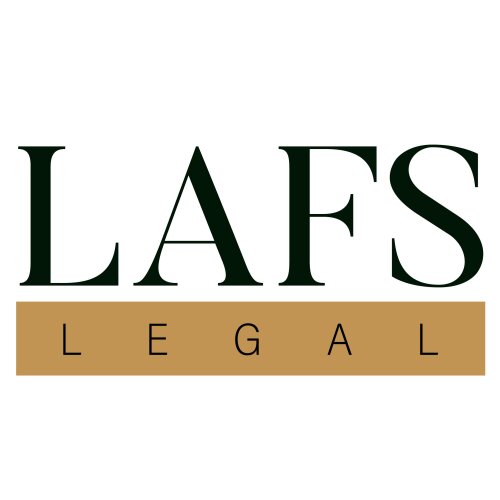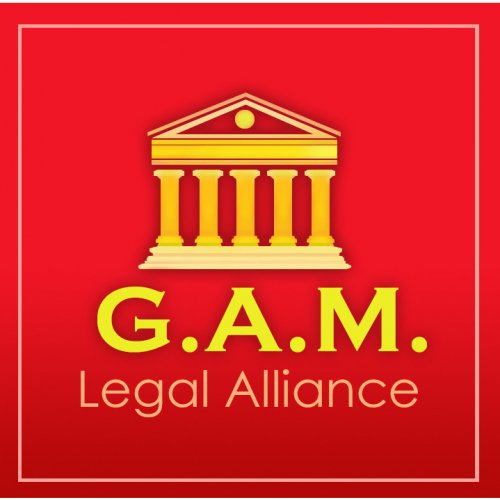Best Housing, Construction & Development Lawyers in Thailand
Share your needs with us, get contacted by law firms.
Free. Takes 2 min.
Free Guide to Hiring a Real Estate Lawyer
Or refine your search by selecting a city:
List of the best lawyers in Thailand
Legal guides written by Smart Legal Solutions:
- Main Legal Measures to Protect Foreign Investment in Thailand
- The importance of the geographical indications for the Thai economy
Legal guides written by SIAM LEGAL INTERNATIONAL:
- Defamation Laws in Thailand: Criminal Charges and Civil Suits
- The State of Thailand’s Long-Term Resident (LTR) Visa Program in 2025
- The Penalties Of Not Filing Your Income Tax Return As A Foreigner In Thailand
Thailand Housing, Construction & Development Legal Questions answered by Lawyers
Browse our 1 legal question about Housing, Construction & Development in Thailand and read the lawyer answers, or ask your own questions for free.
- Property in Phuket
- I bought a property in Phuket in 2019 and it should be completed at the end of 2021 but the project was delayed. I paid nearly full payment but now I cannot contact the project owner anymore. Please kindly advise what I should do. Thanks.
-
Lawyer answer by GPS Legal
Thank you for your question. My name is Dave Lind, Director-Client Services at GPS-Legal. GPS has extensive experience in property matters in Thailand. In terms of what you should do, if you have exhausted your ability to rectify this situation...
Read full answer
Thailand Housing, Construction & Development Legal Articles
Browse our 4 legal articles about Housing, Construction & Development in Thailand written by expert lawyers.
- How Foreigners Can Own Property in Thailand
- For foreigners considering property ownership in Thailand, understanding the process and relevant laws is crucial. These laws are not typically compared to the property ownership laws of other countries, as the Kingdom strictly regulates which foreigners can own property, the circumstances under which they can do so, and the types... Read more →
- Condominium Ownership in Thailand: What Foreigners Need to Know
- Thailand's attractiveness as a prime property investment destination continues to attract foreign investors, particularly in the condominium market. The rich cultural makeup of the country, picturesque landscapes, and a flourishing tourism industry make Thailand an appealing prospect. However, successfully becoming a condominium owner in Thailand demands a nuanced understanding of... Read more →
- Understanding Thailand's Land Ownership Laws: A Guide for Foreign Investors
- When it comes to buying property in a foreign country, the legal landscape can often seem like a labyrinth of confusing regulations and restrictions. Thailand, a popular destination for foreign investors, is no exception. Many prospective property buyers find themselves bewildered by terms like "chanote," "concrete acts," and "usufruct." However,... Read more →
About Housing, Construction & Development Law in Thailand
Housing, Construction & Development Law in Thailand encompasses various regulations and statutes governing the planning, growth, and management of residential, commercial, and industrial properties. This legal framework ensures that construction projects adhere to safety standards, zoning laws, and environmental considerations. With the country's growing economy and tourism industry, the need for adequate infrastructure is ever-increasing, thus necessitating clear legal guidelines to manage this growth efficiently. These laws aim to balance the interests of developers, investors, the state, and the public while promoting sustainable urban development.
Why You May Need a Lawyer
There are numerous situations in which individuals or businesses might need legal assistance in Housing, Construction & Development in Thailand:
- Property Purchase: Legal advice is crucial when acquiring property to ensure compliance with Thai regulations, particularly for foreign buyers facing ownership restrictions.
- Dispute Resolution: Disputes may arise between developers, contractors, and property owners regarding construction defects, delays, or contract terms.
- Regulatory Compliance: Navigating local building codes, zoning laws, and environmental regulations often requires professional guidance to avoid legal issues.
- Project Development: Major development projects might need legal input on financing, land acquisition, and partnership agreements to mitigate risks and streamline processes.
- Tenancy Issues: Landlord-tenant relationships can lead to legal conflicts requiring formal resolution mechanisms under Thai law.
Local Laws Overview
Understanding local laws related to Housing, Construction & Development in Thailand is essential for any party involved in these sectors:
- Foreign Ownership Guidelines: Foreign ownership is limited primarily to condominiums where foreigners can own up to 49% of the total floor area.
- Land Code Act: Outlines land ownership, transfer procedures, and registration essential for all land transactions.
- Building Control Act: Sets standards for construction practices, ensuring safety and compliance across all types of buildings.
- Environmental Protection Laws: Require environmental impact assessments for projects, particularly those that might affect ecological balance.
- Zoning Regulations: Govern land use and development based on urban planning initiatives to prevent overcrowding and unsustainable growth.
Frequently Asked Questions
What are the restrictions on foreign ownership of property in Thailand?
Foreign individuals can own up to 49% of a condominium's unit space but cannot own land directly. They can, however, lease land for a maximum of 30 years.
How can I resolve a dispute with a contractor in Thailand?
Dispute resolution may involve negotiation, mediation, arbitration, or litigation, depending on the contract terms and the nature of the issue.
What is a Chanote title deed, and why is it important?
A Chanote is the most secure form of land title in Thailand, making it crucial for ensuring ownership and rights over a property.
How can I verify the legal status of a property before purchase?
Conduct due diligence through a thorough title search, reviewing ownership history, any liens, and compliance with local zoning laws.
Are there specific environmental regulations that construction projects must follow?
Yes, projects may require an environmental impact assessment (EIA) if they exceed certain thresholds that could affect the environment.
What are the standard terms in a Thai property lease agreement?
Lease agreements in Thailand typically cover the lease duration, rental amount, maintenance responsibilities, and termination conditions.
How is property tax calculated in Thailand?
Property tax depends on the property's appraisal value, use category (residential, commercial, or industrial), and specific local government rates.
What should I include in a construction contract?
Include detailed project specifications, timelines, payment schedules, responsibilities, warranties, and dispute resolution procedures.
Can I develop a property on agricultural land in Thailand?
Development on agricultural land may be restricted or subject to conversion processes adhering to zoning laws and local government approvals.
What are the penalties for non-compliance with building regulations?
Penalties may include fines, mandatory adjustments to the construction, or demolition orders and legal action depending on the violation.
Additional Resources
If you need further information or assistance, consider reaching out to the following resources:
- Department of Lands, Thailand: Manages land recordkeeping, title registration, and land rights verification.
- Thai Real Estate Association: Offers insights and updates on the property market and associated legal guidelines.
- Office of the National Economic and Social Development Council: Provides information on national development plans and zoning regulations.
- Board of Investment (BOI) Thailand: Helps investors navigate opportunities and legalities in property and infrastructure investments.
Next Steps
If you require legal assistance in Housing, Construction & Development, consider the following steps:
- Contact a legal professional specializing in real estate law in Thailand for advice tailored to your situation.
- Gather all relevant documentation related to your case, such as contracts, titles, permits, and correspondence.
- Prepare a list of questions or concerns to discuss with your lawyer to ensure clarity and understanding of your legal position.
- Explore dispute resolution mechanisms if required, and consider mediation or arbitration as initial steps before litigation.
- Stay informed about ongoing regulatory changes and legal matters affecting your interests in housing and development.
Lawzana helps you find the best lawyers and law firms in Thailand through a curated and pre-screened list of qualified legal professionals. Our platform offers rankings and detailed profiles of attorneys and law firms, allowing you to compare based on practice areas, including Housing, Construction & Development, experience, and client feedback.
Each profile includes a description of the firm's areas of practice, client reviews, team members and partners, year of establishment, spoken languages, office locations, contact information, social media presence, and any published articles or resources. Most firms on our platform speak English and are experienced in both local and international legal matters.
Get a quote from top-rated law firms in Thailand — quickly, securely, and without unnecessary hassle.
Disclaimer:
The information provided on this page is for general informational purposes only and does not constitute legal advice. While we strive to ensure the accuracy and relevance of the content, legal information may change over time, and interpretations of the law can vary. You should always consult with a qualified legal professional for advice specific to your situation.
We disclaim all liability for actions taken or not taken based on the content of this page. If you believe any information is incorrect or outdated, please contact us, and we will review and update it where appropriate.
Browse housing, construction & development law firms by city in Thailand
Refine your search by selecting a city.

















